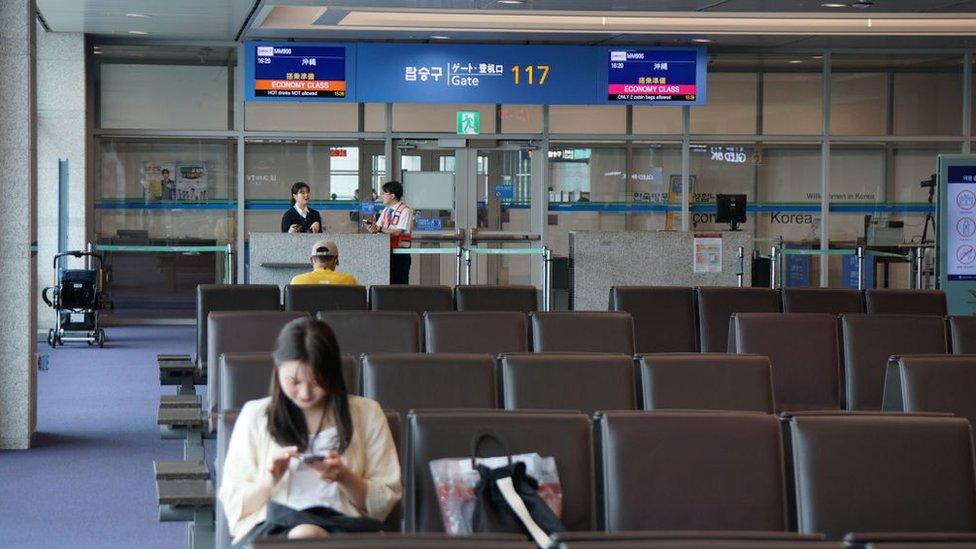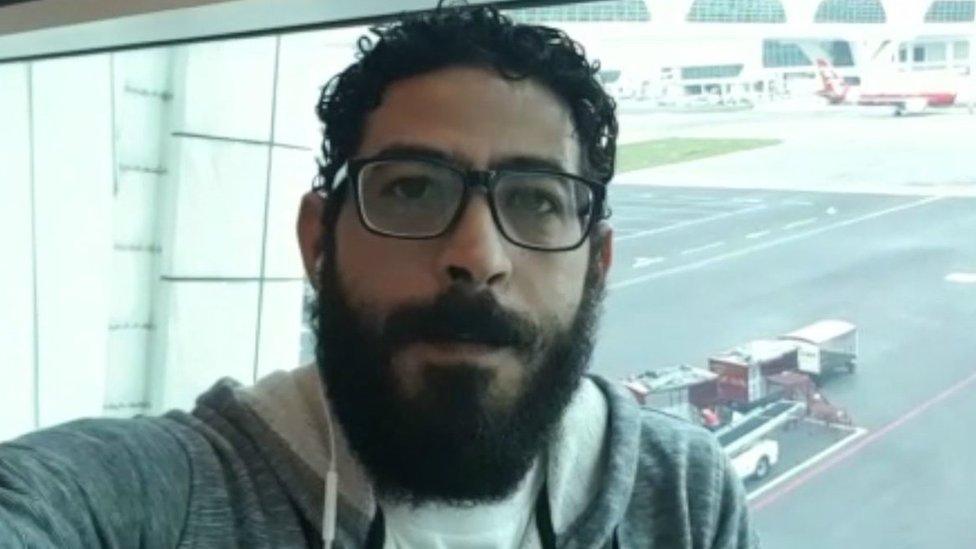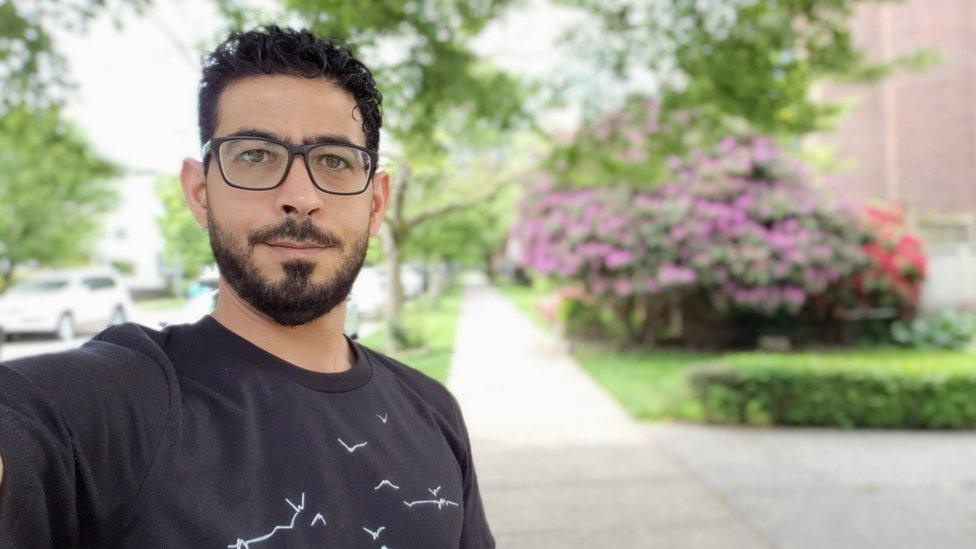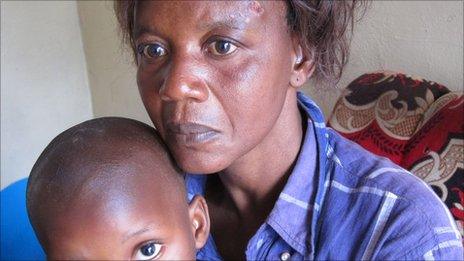Family from Angola in South Korea airport for nine months win court fight
- Published

The family arrived at Incheon International Airport in December 2018
A family from Angola trapped in a South Korean airport for the last nine months can finally apply for asylum following a high court ruling.
The Lulendo family say they travelled to South Korea because they were being persecuted for their Congolese background in Angola.
But officials refused the parents and four children permission to apply for asylum as they disputed their claim.
Unable to enter South Korea, the family have been stuck since 28 December.
Immigration officials at Seoul's Incheon International Airport suspected Nkuka Lulendo and his wife of having economic motives for seeking asylum and denied them the chance to apply for refugee visas, according to local media, external.
But in a video interview, external from June with new media company Asian Boss, Mr Lulendo said he was "sabotaged" for his Congolese roots.
He was working as a taxi driver in Angola when his car smashed into a police jeep. He had swerved in order to avoid crashing into pedestrians, he said.
"They [police] put me in jail on the spot - without any trial," he alleged in the interview. He added that he had been "mistreated" and "tortured" during the 10 days he spent in jail.
He also said that police went to his house and raped his wife on the day that he was released from jail.
"We didn't intend to come to Korea. We just had to flee the country," he is quoted as saying in the interview.
Mr Lulendo says he is a member of a community which has argued for several years that its members face discrimination from Angolans because of their Congolese heritage.
The South Korean high court's ruling in favour of the Angolan family overturns a lower court's decision, which sided with immigration authorities.
"It's meaningful that the court acknowledged the family's right to have their refugee application considered," lawyer Lee Sang-hoon, who represents the family, told Yonhap News Agency, external.
"We hope this ruling will also change the society's misconception of asylum seekers."

You may also be interested in:
Lee Heuk San boxes in South Korea after escaping Cameroon

- Published27 November 2018

- Published12 August 2019

- Published14 October 2011
